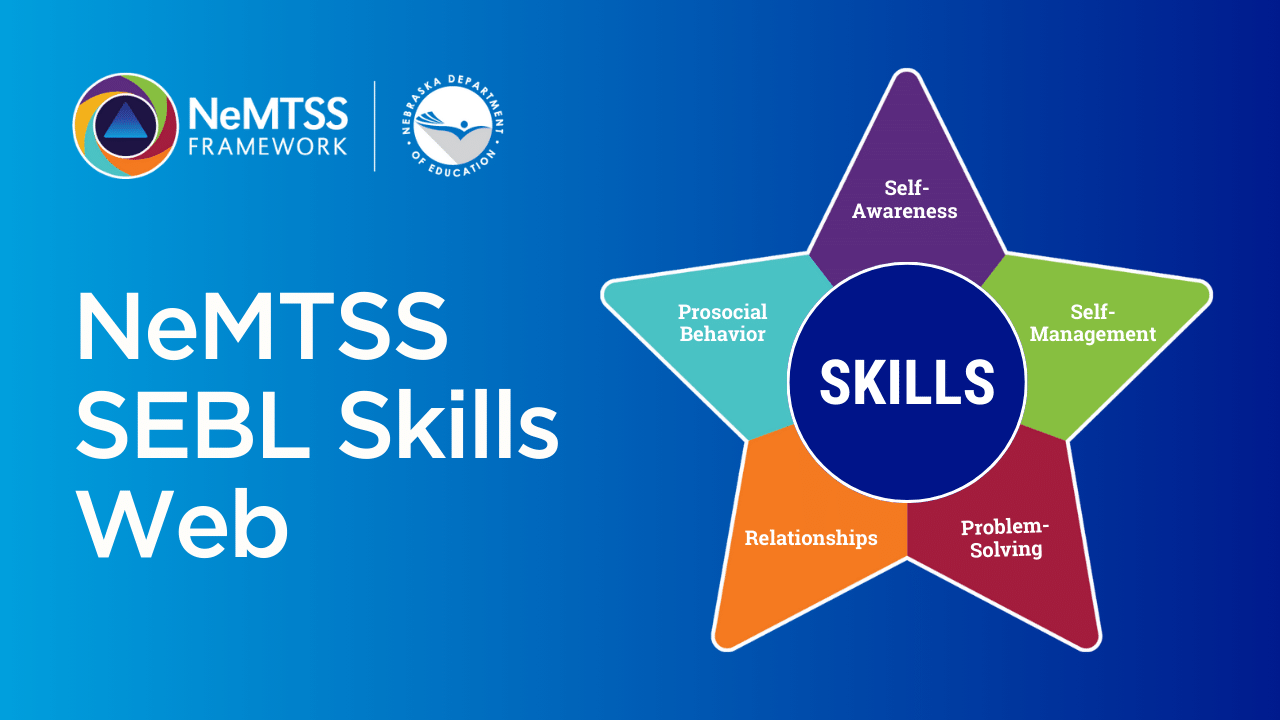Join us in celebrating SEL Week 2024! This year, the NeMTSS Social, Emotional and Behavioral Learning Specialists have updated their skills web to guide their work in supporting educators throughout Nebraska to improve school outcomes.
The NeMTSS SEBL specialists believe that educators see the most impact when SEBL skills are explicitly taught and embedded within academic instruction. This skills web is a good resource to identify specific skills that support social, emotional and behavioral development. It also acts as a quick visual to remind educators of skills they may already be teaching within their educational environment.
All individuals teach, practice and model SEBL skills, whether it is done explicitly or implicitly. These skills are components of our everyday lives and functioning. When we explicitly identify, model and teach SEBL skills, we help students of all ages develop these skills, which in turn, helps them become effective college, career and community ready citizens.
SEBL should be integrated within a multi-tiered system of support (MTSS) to promote sustainable and effective implementation.
“SEL is not one more thing on the plate. It is the plate.”
–Lisa Xagas
NeMTSS SEBL Skills Web
The SEBL skills web contains five overarching skills:
- Self-Awareness
- Self-Management
- Problem-Solving
- Relationships
- Prosocial Behavior
Each skill is expanded further to identify more specific skills within each area. While not exhaustive, these detailed skills offer a more comprehensive picture of what each overarching skill may look like in practice to enhance student outcomes and prepare them for post-secondary success.
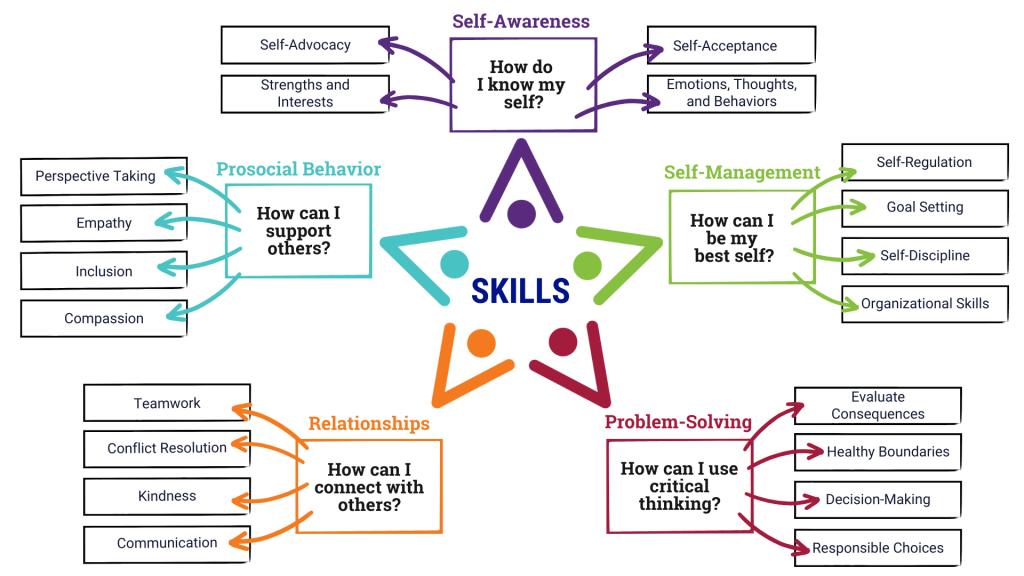
Self-Awareness Skills
Self-Awareness Skills include the ability to:
- Understand one’s own thoughts, emotions and behaviors, and recognize their impacts.
- Recognize one’s strengths and interests and apply them to their goals and purpose.
- Identify ways to advocate for one’s self.
- Discover self-acceptance through reflection.
When we reflect on self-awareness, we can ask, “How do I know my self?”
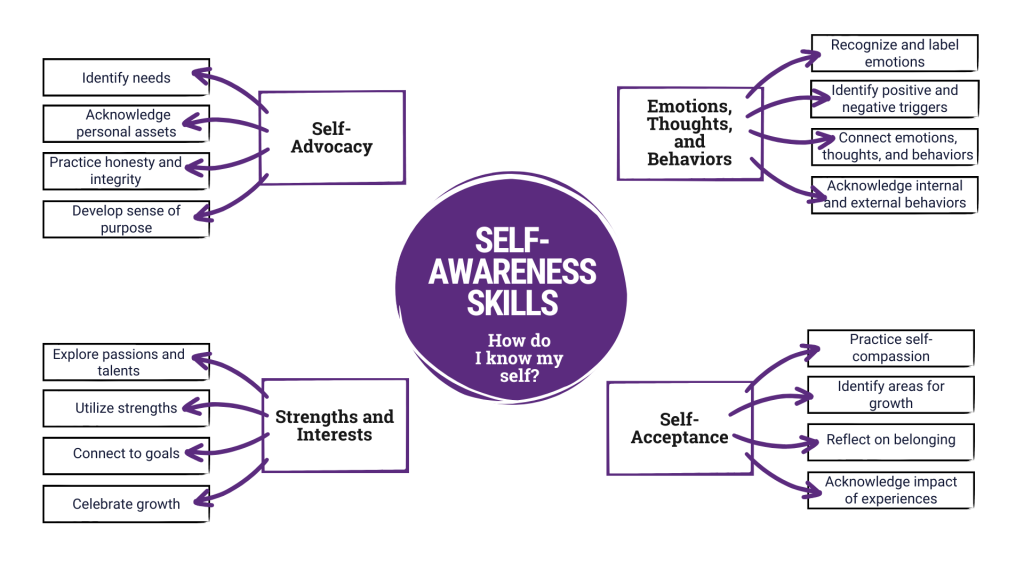
Self-Management Skills
Self-Management Skills include the ability to:
- Identify and use strategies to self-regulate.
- Set, advance and achieve goals.
- Display self-discipline through both success and struggle.
- Improve organization across settings.
When we reflect on self-management, we can ask, “How can I be my best self?”
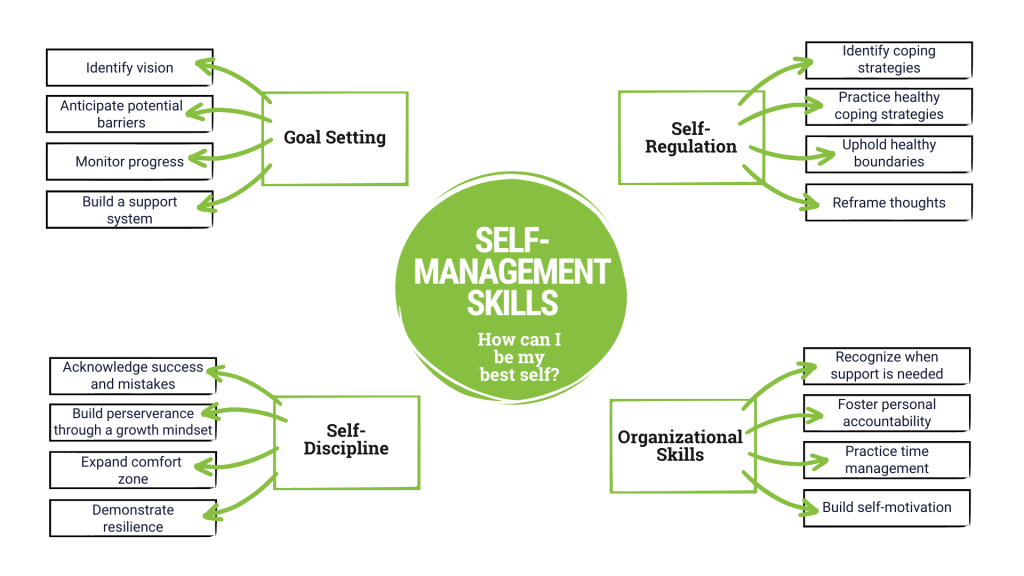
Problem-Solving Skills
Problem-Solving Skills include the ability to:
- Evaluate consequences and benefits of various actions or choices.
- Identify, set and maintain healthy boundaries.
- Solve problems through the decision-making process
- Make caring and constructive choices.
When we reflect on problem-solving skills, we can ask, “How can I use critical thinking?”
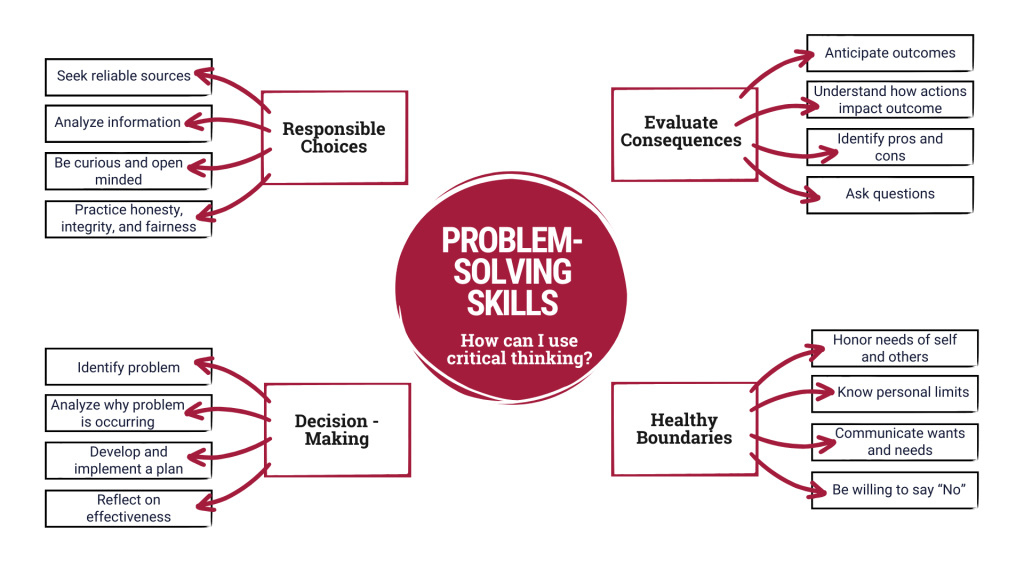
Relationships Skills
Relationship Skills include the ability to:
- Work collaboratively with a team.
- Communicate with others using verbal and nonverbal cues.
- Show kindness for others through actions.
- Resolve conflicts effectively.
When we reflect on relationship skills, we can ask, “How can I connect with others?”
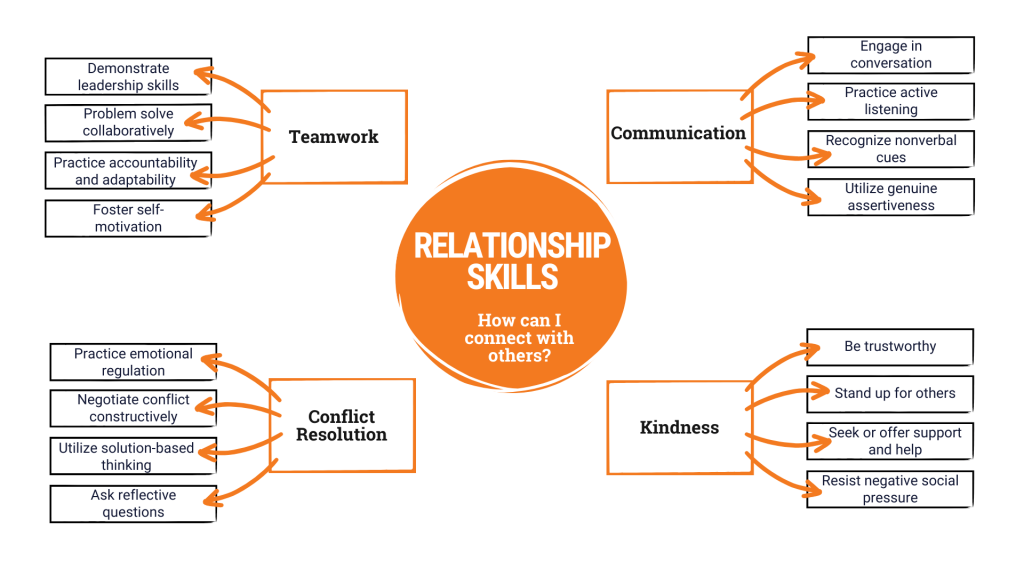
Prosocial Behavior Skills
Prosocial Behavior Skills include the ability to:
- Understand the perspectives and experiences of others may be different than our own.
- Display compassion for others’ challenges.
- Respect and contribute to an inclusive environment.
- Show empathy toward others.
When we reflect on prosocial behavior skills, we can ask, “How can I support others?”
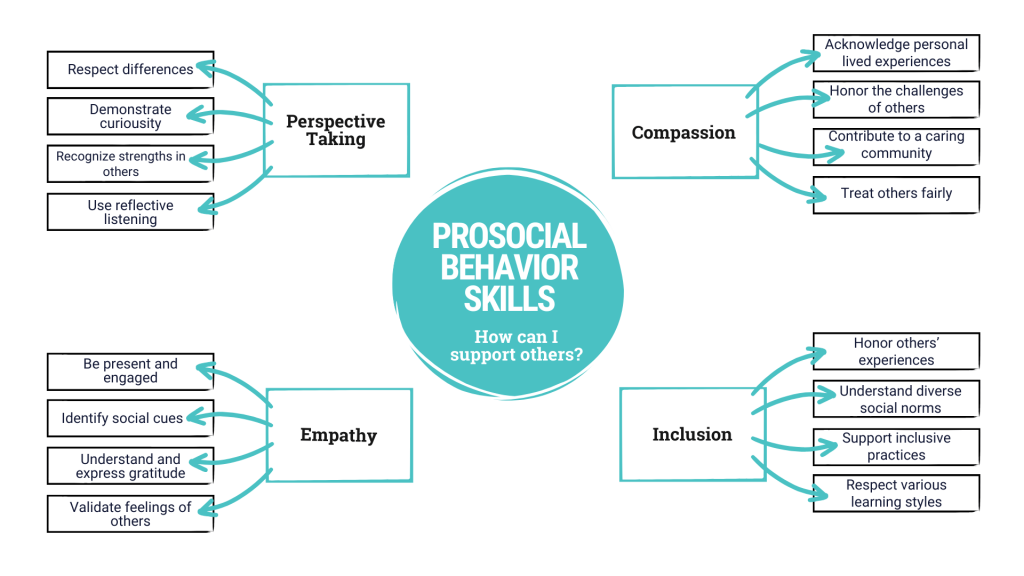
If you have questions or would like more information, please email our SEBL specialists at mtss-sebl@unl.edu.


